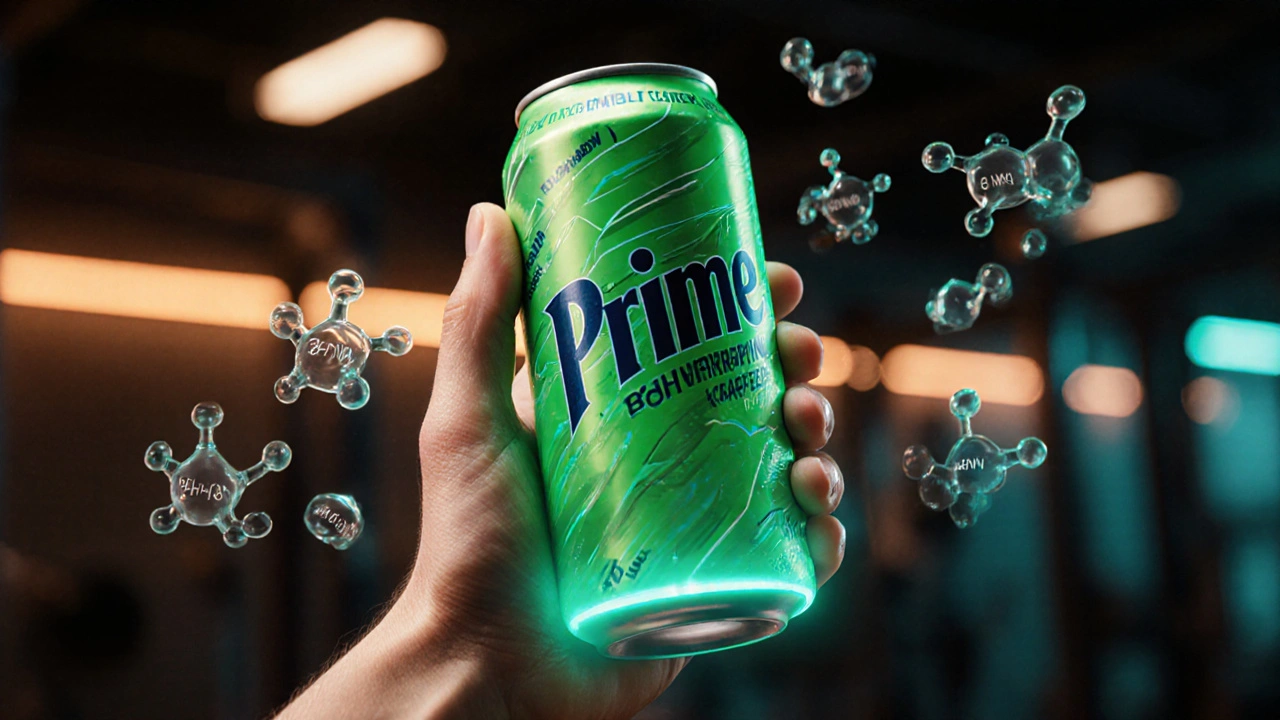Prime Health Effects of Energy Drinks – What You Need to Know
Energy drinks are everywhere – in grocery aisles, gyms, and even office break rooms. You probably reach for one when you need a quick boost, but what does that boost actually do to your body? Below we break down the biggest health effects, point out the real risks, and give you simple ways to stay safe.
What Happens When You Sip a Can?
The main player in most energy drinks is caffeine. A typical 8‑oz can holds about 80 mg of caffeine, roughly the same as a cup of coffee. That amount can raise your heart rate, sharpen focus, and make you feel more awake for a few hours. However, the spike is short‑lived; once the caffeine wears off you may feel tired again, a cycle that can lead to drinking more.
Besides caffeine, many brands add sugar, taurine, B‑vitamins, and herbal extracts. Sugar gives an immediate energy surge, but it also spikes blood glucose and can contribute to weight gain if you’re not careful. Taurine and B‑vitamins are generally safe in the amounts found in drinks, but the research on performance benefits is mixed at best.
Health Risks to Watch Out For
One of the most talked‑about concerns is the impact on your liver and kidneys. Some studies link high‑caffeine, high‑sugar drinks to increased stress on these organs, especially if you’re already dealing with liver or kidney conditions. The risk isn’t huge for a healthy adult drinking a can or two a week, but regular heavy use can raise the odds of liver irritation and kidney stones.
Heart palpitations are another frequent complaint. If you notice a racing heartbeat after a drink, try drinking water, taking slow deep breaths, and waiting it out. If the feeling lasts more than a few minutes or you feel chest pain, seek medical help.
Sleep disruption is a clear side‑effect. Caffeine stays in your system for 4‑6 hours, so a drink in the late afternoon can make it hard to fall asleep, leading to a cycle of fatigue and more energy‑drink consumption.
So, how can you enjoy the boost without the downsides? Here are three easy habits:
- Limit intake. Stick to one 8‑oz serving per day, and avoid mixing energy drinks with alcohol.
- Hydrate. Drink a glass of water before and after your energy drink to dilute caffeine and sugar effects.
- Choose lower‑sugar options. Many brands now offer zero‑calorie or low‑sugar versions that still provide the caffeine kick.
For athletes, the story is similar. Energy drinks can give a short burst of focus, but they don’t replace proper nutrition and hydration. A balanced snack with carbs and protein before a workout is a smarter, longer‑lasting fuel source.
If you’re worried about specific health issues – like kidney stones, liver health, or heart rhythm – talk to a doctor. They can tell you whether your current energy‑drink habit fits your personal health profile.
Bottom line: energy drinks can be a handy pick‑me‑up, but they’re not a free pass to ignore sleep, diet, or underlying medical conditions. Use them sparingly, stay hydrated, and pay attention to how your body reacts. That way you get the boost you want without paying a hidden health price.
Explore the health impact of Prime energy drink, covering caffeine, sugar, vitamins, risks, benefits, and safe usage tips for everyday consumers.

